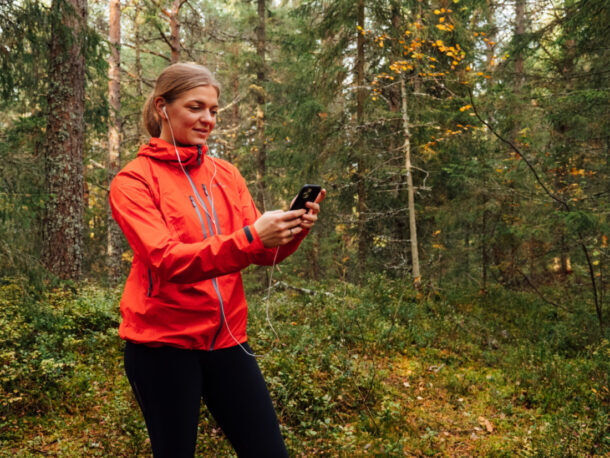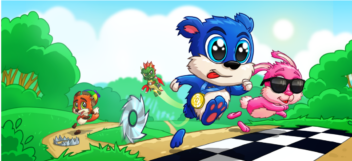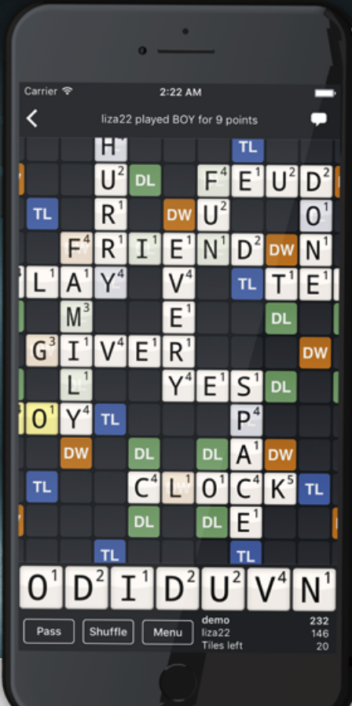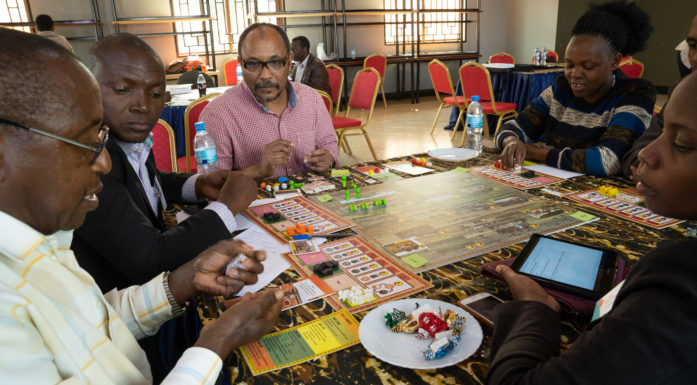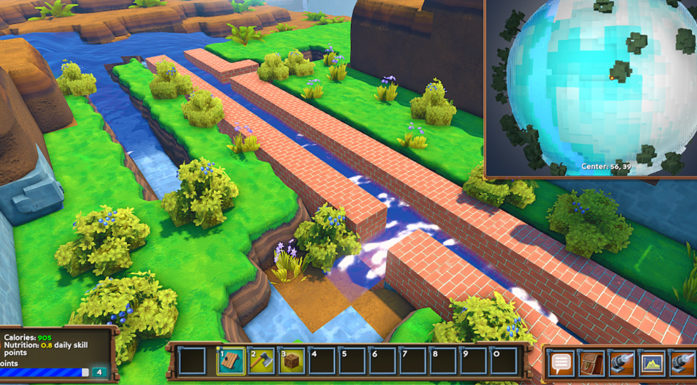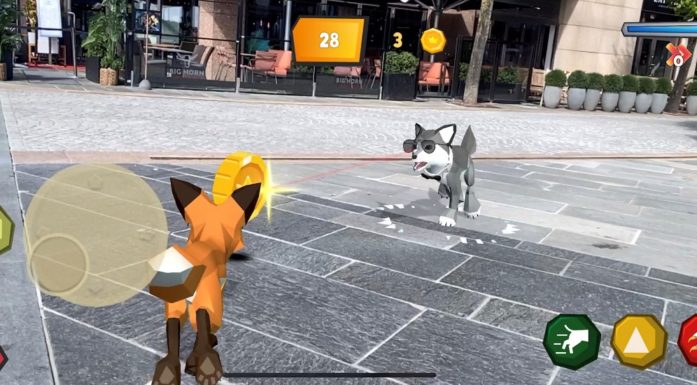Games make us collect posts and care for imaginary animals
Apps and games make us exercise more often, play more, run further, learn better and work smarter. Meet the innovators who make you do the things you should be doing but that you maybe don’t want to.
Imagine that wanting to wear a virtual laurel wreath could get you off the couch and into the woods. Or that you would give it your all at work to be covered in digital confetti.
This phenomenon is called gamification and has evolved in tandem with the gaming industry. Gamification is about exploiting gamers’ motivation, and moving elements and mechanisms of game design to non-gaming situations.
One of those game elements is reward. The possibility of winning virtual trophies inspires us to put in extra effort, and can motivate us so that the activity becomes the goal — and the reward — in itself.
From phenomenon to business
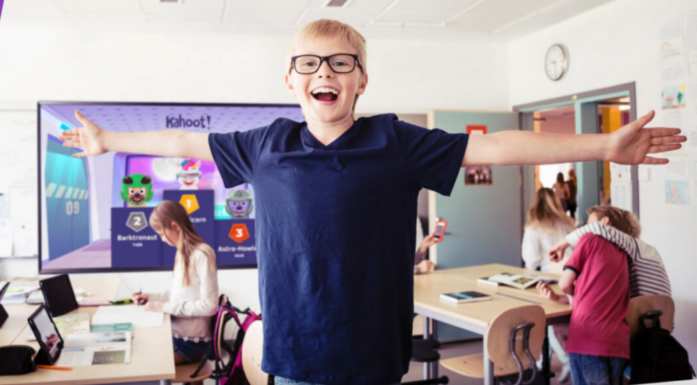
Game-based teaching. Kahoot! has found its way into classrooms across the globe, and has about 1.3 million paying users.
The biggest success nurtured by Norwegian University of Science and Technology (NTNU) in this universe is Kahoot!, which is now used in classrooms worldwide. Other successful projects from NTNU include companies, apps and games such as WordFeud, Fun Run and Stolpejakten.
Names like Dogu SalesScreen, Myworkout GO, BitPet and Auge Technologies might not be quite so familiar – yet. However, they have all carefully studied the recipe for success and are all hoping for a big breakthrough. Several are well on their way.
Making sales work a breeze
The business concept of Dogu SalesScreen AS is to turn sales work into a game. The company was founded by the computer science students Sindre Haaland, Marius Ekerholt and Øystein Heimark in 2011.
“We are now working to secure our position as a leader – globally – when it comes to the gamification of sales,” Haaland said. Haaland is the CEO and is based in New York.
He said the concept started when they developed an app to replace their company’s internal text messages, by using push-notification technology.
From ringing the bell to virtual trophies
“Our first customer was Opplysningen 1881 (1881.no) in Trondheim,” he said.
This is an online service that provides free phone numbers, maps and addresses — with the opportunity to purchase additional information.
Haaland said the company sent SMS messages to the entire workforce when a sale was made, in order to recognize, celebrate and motivate sales.
The experience with 1881.no helped the three former NTNU students launch SalesScreen as a product in 2014.
They have now have a turnover of more than NOK 70 million and have 50 employees across six countries.
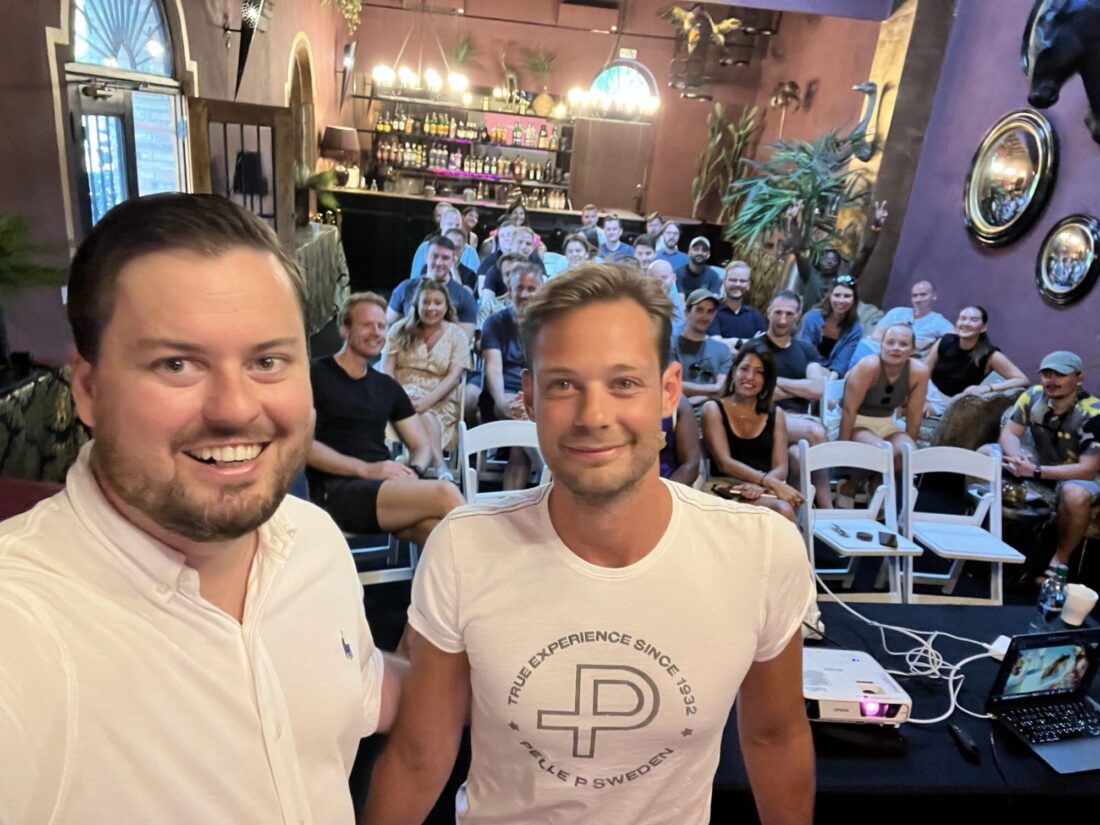
Living off of gamification. Former NTNU students Sindre Haalaand (left) and Marius Ekerholt based their business concept on the idea of turning sales work into a game. Photo: Dogu SalesScreen AS
Customised sales game
The idea was founded on the fact that salespeople enjoy camaraderie, competition and recognition. Ringing the bell, top 10 list screens and secret prizes have always inspired people to put in a little extra effort.
SalesScreen includes these sales drivers in the software it offers to companies and sales departments.
Target audience: 20 million salespeople
The Dogu SalesScreen AS founders are investing in growth, especially in the USA and Europe, outside the Nordic region. Haaland estimates that more than 20 million salespeople work in the market they are targeting – in the USA and western Europe alone.
“These are industries with a high sales pace, such as call centres, insurance companies, telecommunications companies, brokers, recruiters and the like. In other words, there is a potential here of just over NOK 100 billion per year in our little niche,” Haaland says.
Digital workouts on prescription
The health technology company Myworkout Gruppen is the first company worldwide to achieve the “public quality-approved technology for digital workouts as medicine,” stamp.
Their mobile app, Myworkout GO, has 130,000 registered users and is based on the research conducted by Jan Hoff and Jan Helgerud, both professors of medicine at NTNU.
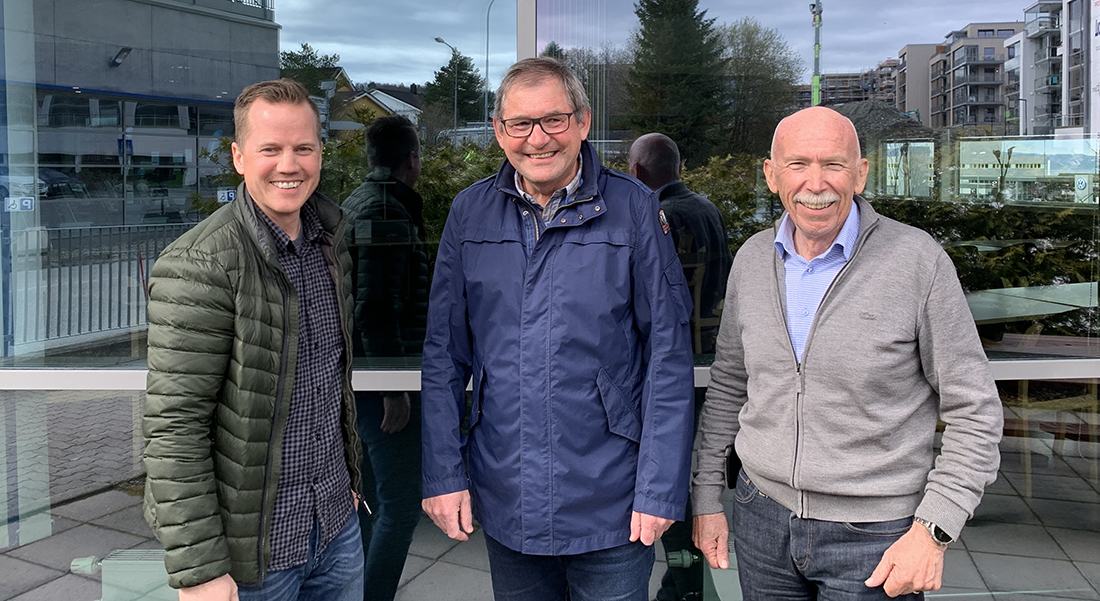
For 30 years, professors Jan Helgerud (centre) and Jan Hoff (right) have studied how exercise can prevent and reverse lifestyle diseases. The photo shows them with founder and general manager of Myworkout Gruppen, Knut Løkke. Photo: Myworkout Gruppen.
Turning minutes into points
“We can link what we sell to the massive health benefits we know about from research. Without this, we would be unable to operate a profitable business with 30 FTEs on our payroll,” he says.
All of this information has been built into diagnosis-specific apps that have been approved as medical devices.
The message is that high-intensity training (HIT) is the most important thing you can do for your own health and that 32 HIT minutes per week are enough. The app turns minutes into points and users collect HIT points that improve their health, condition and performance.
Different apps for different diagnoses
The company focuses on more than 35 diagnoses. They started with high blood pressure, as research shows that specific training can be twice as effective at lowering blood pressure than blood pressure medication.
The core technology has been taken from Myworkout GO, which has been given the highest possible quality score of “A” by the Norwegian Directorate of Health.
Digital medication on prescription
Applications have also been submitted to also have the apps approved as medical devices in the EU and USA.
An application has also been submitted for the apps to be approved by the Norwegian reimbursement system. When this approval has been granted, doctors will be able to write prescriptions and refer patients for digital treatment.
An internationally published PhD study has shown that the health benefits of training using the app are just as good as regular follow-up with health professionals.
Another PhD study shows that the same app evaluates the maximum oxygen absorption with scientific precision, which is unique, according to Løkke.
Gamification and the word-of-mouth effect
Myworkout GO has a number of well-known companies in its customer portfolio. After launching a new website for the international market, companies in 90 countries have requested quotes.
“It’s about providing people with the right motivation and creating positive group pressure. When people end up chatting about the app at work, we will be able to recruit even more people,” Løkke says.
The quiz app that turned into a superstar
Kahoot! started as a modest quiz app and turned into an international sensation in the technology and e-learning world. With Professor Alf Inge Wang from the Department of Computer Science at the helm, student Morten Versvik developed the game with Johan Brand and Jamie Brooker through the company We Are Human.
They received extra help from NTNU’s commercialization company Technology Transfer AS, which sold its 20 per cent during the autumn of 2014.
-
- You might also like: Computer games for classroom teaching
At its peak, Kahoot! was worth NOK 58 billion – on paper. The current value is around NOK 14 billion. Globally, the company has 1.3 million paying customers and expects revenues of USD 170 million this year.
Kingdoms and artwork in Kahoot!
Alf Inge Wang is still involved in Kahoot! and helps develop new gaming concepts and produces music.
Over the last year, he has helped develop gaming modules in which players compete to build the highest tower, collect treasure on a tropical island, avoid being gobbled up by a sea monster, win a battle for a kingdom and collaborate to create artwork.
“My focus is still on how we can use gaming technology for motivation beyond just entertainment. In health, the focus is on increasing both physical and social activity, while also ensuring that working out becomes fun,” Wang says.
BitPet – digital animal husbandry
Last autumn he helped launch the mobile game BitPet, in collaboration with Mathias Grønstad, a student at NTNU’s School of Entrepreneurship. Grønstad is the prime mover and CEO of the company of the same name.
- Read more: BitPet animals get you out for a walk
BitPet is about taking care of virtual animals. The idea is that the game will have a positive impact on physical, mental and social health beyond just the time when the player is playing. Players need to head outside to care for their pets, such as training, grooming and feeding the animals. The players get good scores when their animals are well cared for. It is also possible to meet other players and their animals.
Believes in health benefits of gaming
This all takes place using augmented reality (AR). The players can view their animals via their mobile phone camera when playing or challenging each other and when moving around in their real surroundings.
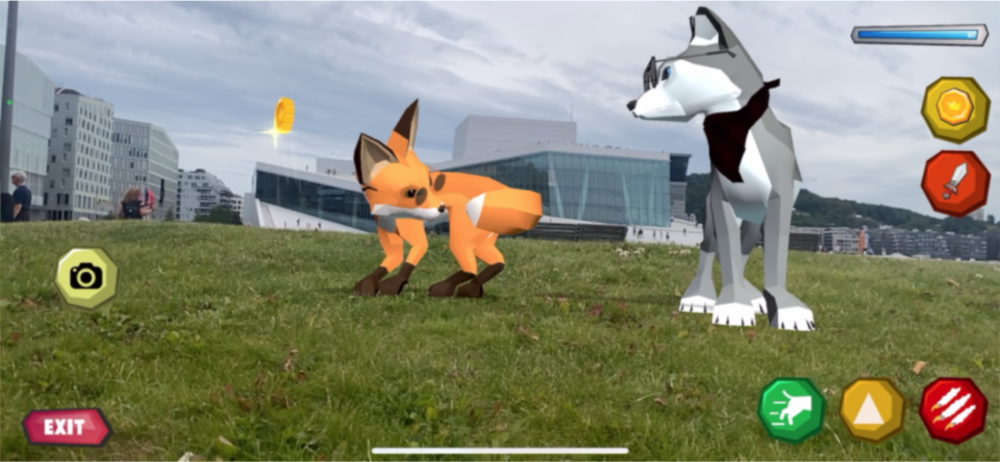
BitPet players take care of virtual animals. The idea behind the game is that it can have a positive effect on the player’s physical, mental and social health even after the game is played. Illustration: BitPet
“We are still working on developing the concept so that it all works as intended. Even though BitPet is available for testing, we have yet to release a commercial version. We firmly believe it will have a great impact when it comes to games with positive health benefits,” Wang said.
More animals in the woods: Fun Run
The Department of Computer Science has fostered several animal companions. To date, 150 million users have downloaded the mobile game series Fun Run.
Each player in the game controls an animal in the woods and can buy various accessories and equipment to give the animals unique characteristics. Each animal competes with other animals to overcome obstacles and finish first.
The game was developed by three students from the School of Entrepreneurship. They founded the company DirtyBit AS in 2011.
Creating memories together
Fun Run is a “pure” mobile game. The founders wanted to recreate the emotions and memories from the Mario universe of their childhood and pass it on to the mobile generation. Their vision is to enable people to create memorable moments together.
Shortly after the first version launched in 2012, the game became the most downloaded free app in the USA. Today, DirtyBit has 24 employees, runs a rock-solid business and has received a number of accolades. Revenue in recent years has been between NOK 30 and 37 million with profits of NOK 8-12 million each year.
Filthy rich from word games
Håkon Bertheussen has earned several hundred million kroner from the letters game WordFeud. He launched what later became an enormous success as an newly graduated NTNU civil engineer in 2010.
The game is a Scrabble variant for smartphones and is being launched in more and more countries. The 2021 accounts show revenue of NOK 97 million and a profit of NOK 71 million for the sole owner, Bertheussen.
From bachelor to nationwide craze
Ten years ago, Anders Hagebakken and Markus Brovold’s bachelor’s thesis became the start of the Stolpejakten craze. The computer engineering students at NTNU Gjøvik have managed to get people of all ages to walk, run and cycle as they search for green, blue, red and black posts.
“This year, around 146,000 people have claimed at least one post. Last year, the figure was around 190,000. Somewhere between 200,000 and 250,000 people have downloaded the app,” Brovold said.
We believe there is a gamer in all of us, whether it’s card games, stamp collecting or role playing in virtual worlds.
Available in primary and lower secondary schools
Stolpejakten Uteskole is now being rolled out as part of teaching in all subjects and age groups at 60 primary and lower secondary schools in Norway. The plan is to increase this number next year.
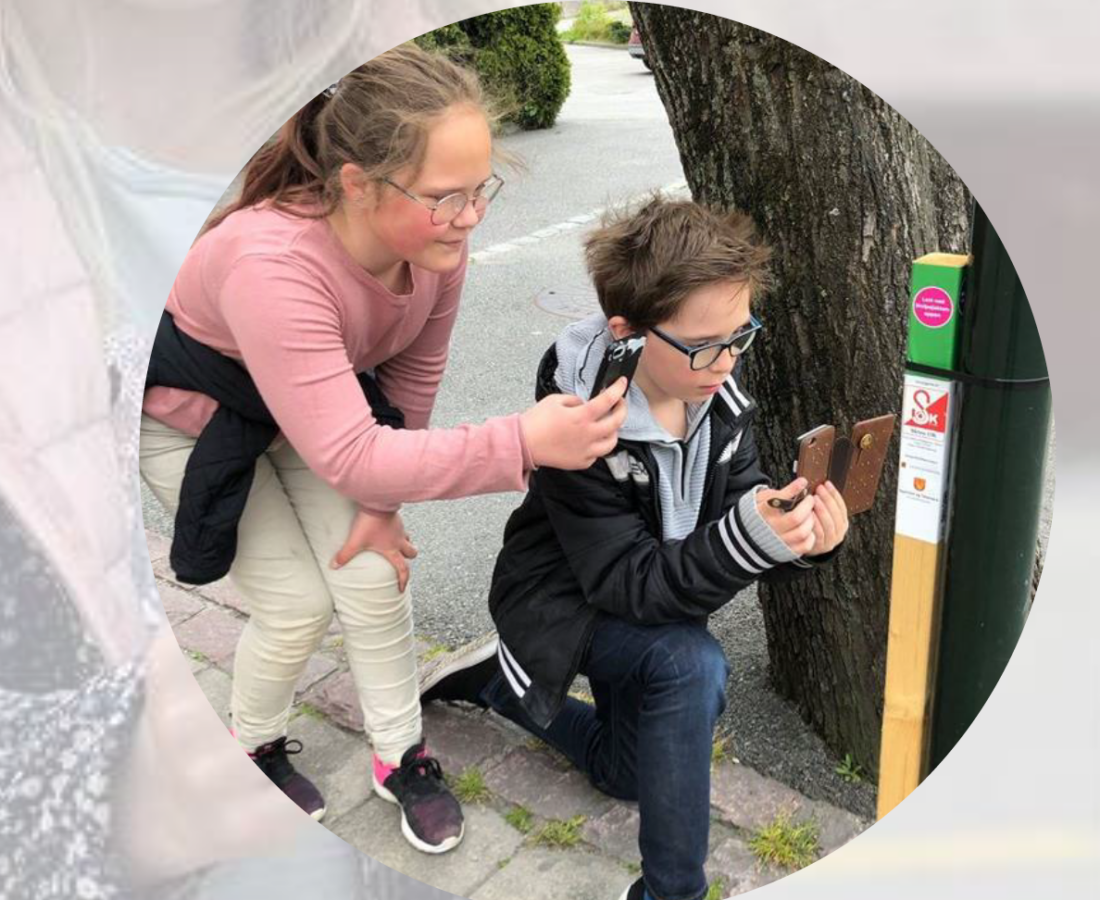
Stolpejakten is a game about collecting points, achievements and badges. People across Norway are competing to climb the game’s leaderboards. Illustration: Stolpejakten
The teachers create the routes and tasks. Pupils are split into groups and hunt for posts and scan QR codes.
Maths teachers can create a route around a football pitch, for example. The tasks hidden behind the codes could include activities such as calculating the circumference and area of the centre circle or to finding the area of the 16 metre box.
Simple approaches work
“There was already a digital solution when we started developing this, but it didn’t use any of what we had learned about gamification at NTNU. That is to say, simple things like leaderboards and accolades. Basically we’re talking about elements of reward and competition between friends and acquaintances,” Brovold says.
“Stolpejakten is our baby and the first thing we created as a company. Having created something successful that lots of people are familiar with is incredibly motivating,” Brovold said.
As a measure of just how much people are engaged in the game, Brovold sometimes receives phone calls from people wondering why their points haven’t been recorded.
“I try to fix it, but that was something that was easier when there were only 350 users at Gjøvik rather than 146,000 across the country,” he said
Games leading the way
“When was the last time you carried out an employee survey while having fun? Let’s look at HR (human resources) as a game.” This is how the fledgling start-up Auge Technologies promotes itself on LinkedIn. Founder Simon Sætre Borchgrevink says that gaming represents everything new and exciting to them.
“Games, gaming technology and hardware are leading the way when it comes to exploring how new technology can be used to create incredible new and exciting gaming experiences. This is what we want in our product,” Borchgrevink says, having recently graduated with a master’s degree in Business Development from NTNU’s School of Entrepreneurship.
Data-driven expertise mapping
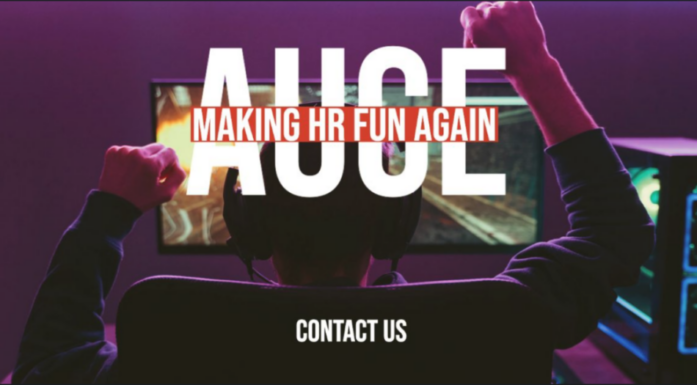
Making HR fun again. Auge is focused on technology and IT businesses. The game creates a virtual world of workpla
He founded Auge last year together with fellow student Birgit Kyvik Vester. This spring, they received Innovation Norway’s Stud-Ent grant of NOK 1 million. They now boast a team of seven people, who are working to further develop the business.
Auge focuses primarily on the technology and IT industry. They create a virtual world of workplaces and employees and exploit the same psychological motivational techniques as game developers.
The business idea is to develop data-driven expertise mapping to strengthen companies’ work on talent development.
“There is a gamer in all of us.”
“Learning in the workplace can be incredibly dynamic. It is possible to utilise Chat GPT, YouTube, Reddit and various assistants that are based on artificial intelligence. Skills development takes place everywhere, all of the time,” he explains.
Auge utilises big data from LinkedIn, Reddit and other relevant sources. The data flow helps ensure that the companies’ expertise maps are up-to-date at all times. The idea is that the company will be able to make strategic decisions more quickly, while also providing the room to customise employee development based on employees’ interests and desires.
“We believe there is a gamer in all of us – whether it’s card games, stamp collecting or role playing in virtual worlds with thousands of others. It’s about enjoying playing, having fun, exploring and setting out on adventures,” says Simon Sæthre Borchgrevink.
Believes in deeper gamification
Are there any limits to the opportunities offered by gamification?
NTNU’s Professor of Game Technology, Alf Inge Wang, does not think so, but strongly believes that there is still a lot of undeveloped potential.
“A lot of the gamification that is used is fairly superficial and not very innovative. This can lead to the temporary improvement of what we are trying to gamify, but the effect decreases over time,” he says.
“I believe in deeper gamification in which we are more closely aligned to what makes computer games so engaging and fun, not simply adding superficial gaming elements such as achievements, points and rewards,” Alf Inge Wang concludes.
